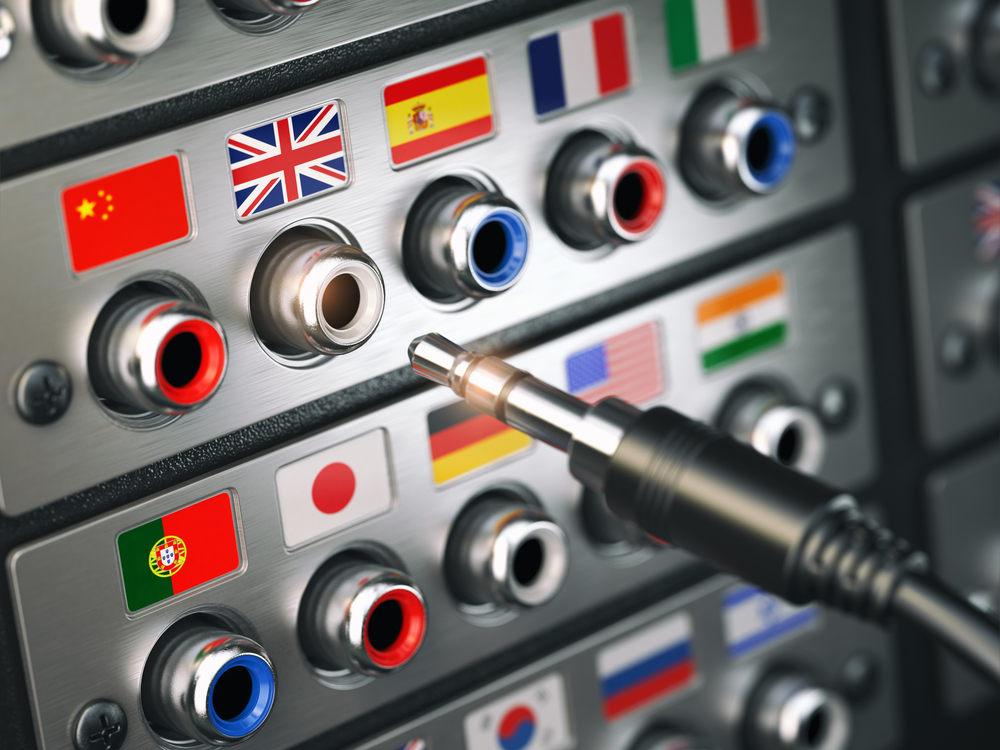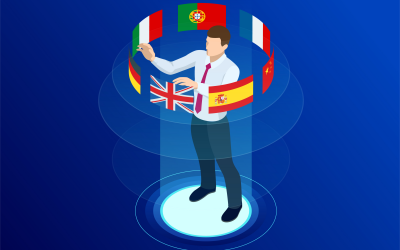When taking on a new language, we often pour most of our energy into learning verbs and pronouns. And for good reason – learning personal pronouns and a handful of the most common verbs unlock hundreds of possible sentences.
“He trusts her.”
“I see it.”
“I love you.”
In fact, learning the verbs and pronouns of a language is such a quick and effective way to achieve almost instant communication, that it’s truly no wonder that we focus so much on them! However, the space between being conversational in a language and fluent in a language often seems endless and insurmountable. There are several reasons for this, but there’s one factor that makes far more difference than any other: Nouns.
Think about it for a second: If you were to learn the 100 most common verbs, adjectives, and adverbs in a language, you could rather effectively navigate the vast majority of conversations using ONLY using those verbs, adjectives, and adverbs. But there are so many conversations in which your input will be limited by not knowing the appropriate nouns! You can’t talk about politics if you don’t know the word for “politician.” You can’t describe a board game if you don’t know the word for “dice.” You can’t discuss automotive repairs if you don’t know the word for “brakes”
The nouns we know or don’t know make or break our ability to communicate more than any other type of word. So what can we do to help us out of this dilemma? What solution do we have to help us navigate the countless scenario’s in which we might find ourselves unable to name a something/someone/someplace? Believe it or not, there’s one simple word that can help us out of nearly any of these situations:
Thing.
“Thing” (or its equivalent in each language) is quite possibly the most underrated word in every language. Forget the German word for “drink”? “Das Ding, das man trinkt” (the thing that one drinks) will get the job done. Don’t know the Spanish word for “credits”? “La cosa despues de un film” (the thing after a film) will take it’s place just fine.
Not only can the word “thing” take the place of thousands and thousands of nouns in conversation, but it can open also dramatically improve the way in which you learn new vocabulary, if you use it properly: “What do you call the thing that one uses to eat?” “A fork?” “No, the thing that you use for cutting.” “A knife.”
Do you see what just happened? You just figured out a way to express your thoughts without needing to know the name of the subject and managed to learn more of the language in that language! And here’s the real kicker: you only had to use one noun in that entire interaction. “Thing.”
Language textbooks always focus on diversifying your vocabulary as much as possible, and so they instead focus on teaching you a large selection of nouns in particular categories! They’ll teach you how to say “house,” “actress,” “cinema,” “dress,” “car,” “sausage,” and “owl” before they ever teach you how to say “thing” or “stuff.” And that makes sense, because most language-texts are focused on making you well-versed in a language so that you can understand articles, books, and conversations about a wide array of different topics.
But the reality is that most students learning from these texts constantly find themselves trying to speak with a native and muttering to themselves, “Shoot! What’s the word for ______.”
Language textbooks aren’t designed to teach you to communicate. They’re designed to teach you words and grammar.
The key to fluency isn’t knowing a lot of words; it’s knowing enough of the right words that you never have to break out of that language in order to keep communicating. Seemingly “ordinary” words such as “thing” help to bridge that gap better than just about anything else. You’ll have plenty of time to get to the point in which you can efficiently express any idea in your head by utilizing a vast arsenal of nouns, but in the meantime, there’s nothing that will ever help you learn a language more than communicating and practicing with native speakers. Words like “thing” help you do exactly that.
And the word “thing” isn’t the only noun of it’s kind. After all, you can’t describe a king as “the THING that rules a country” (that is, unless that country is truly ruled by an inanimate object). The good news is that the other vital nouns make up a pretty short list! So what words does one need to learn in order to start communicating quickly? The absolute essential expressions are:
“The thing/things/stuff that…”
“The person/people who…” and
“The place/places where…”
If you want to go just a LITTLE bit further, you can also learn expressions such as: “The company that…” “The building where…” and “The time when…” If you learn these few basic phrases, you can combine them with any verb you learn to express a bunch of different ideas!
The word “thing” isn’t the only noun of it’s kind. After all, you can’t describe a king as “the THING that rules a country” (that is, unless that country is truly ruled by an inanimate object). But the good news is that the other vital nouns make up a pretty short list! The absolute essential expressions are:
1. “The thing/things/stuff that…”
2. “The person/people who…”
3. “The place/places where…”
If you want to go just a LITTLE bit further, you can also learn expressions such as: “The company that…” “The building where…” and “The time when…” If you learn these few basic phrases, you can combine them with any verb you learn to express a bunch of different ideas:
“My boss” – “The person I work for.”
“My school” – “The place where I study.”
“My office” – “The building where I work.”
“My boyfriend/girlfriend/husband/wife” – “The person whom I love.”
In conclusion, there are always different ways to express certain ideas. If you don’t know a word for something, that doesn’t say anything about your intelligence – people forget words in their native languages all the time! So when you find yourself in that situation, don’t beat yourself up, and don’t panic, because there’s almost always a simpler way to express what you’re trying to say. You just have to learn the right “things” to say.
What other shortcuts have you found helpful? What tricks do you use to facilitate communication?








0 Comments